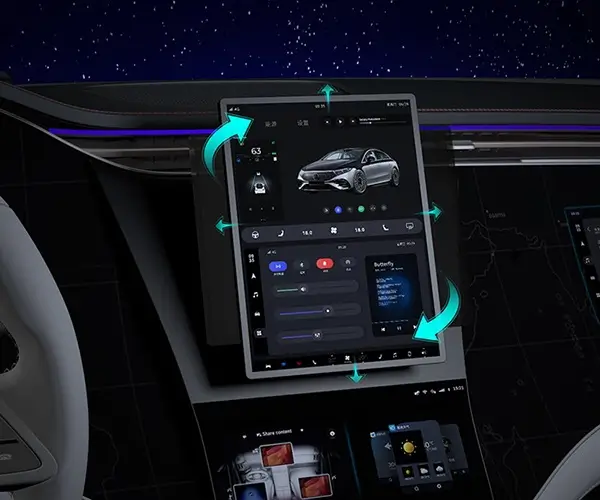In the fast-paced realm of industrial automation, where speed, accuracy, and reliability are paramount, the evolution of motor technology stands as a cornerstone of progress. Among the key innovations that have reshaped manufacturing floors worldwide are high torque industrial servo motors. These specialized motors combine robust power output with exceptional control capabilities, offering a synergy that transforms how machinery operates.

At their core, high torque industrial servo motors are designed to deliver substantial rotational force—torque—enabling machinery to handle demanding tasks with remarkable efficiency. Unlike standard motors, which might excel in continuous, steady operation, these servo motors are engineered to provide high levels of torque even at low speeds, ensuring precise positioning, rapid acceleration, and smooth deceleration. This dual capacity for power and finesse makes them ideal for applications ranging from CNC machining and robotics to packaging and material handling.
The heart of their appeal lies in their sophisticated control systems. Equipped with advanced encoders and feedback mechanisms, high torque servo motors enable real-time adjustments that maintain accuracy under varying load conditions. This dynamic feedback loop ensures that machines operate with minimal overshoot and minimal error, leading to higher quality outputs and reduced waste—a critical factor in competitive industries.
One of the most compelling reasons for adopting high torque servo motors is their ability to optimize energy consumption. While providing high power output, these motors are often designed with energy efficiency in mind. Innovations in motor winding, magnetic materials, and drive electronics allow for precise control that minimizes power wastage, translating into cost savings and more sustainable operation.
Furthermore, these motors are engineered with durability at the forefront. Heavy-duty bearings, thermal management systems, and rugged construction enable them to withstand harsh industrial environments—extreme temperatures, dust, vibration, and continuous operation. Such resilience ensures long service life, reducing downtime and maintenance costs, a significant benefit for industries seeking reliable automation solutions.
Integration capabilities also play a vital role in the rising popularity of high torque servo motors. They are compatible with modern industrial networking protocols such as EtherCAT, ProfiNet, and CANopen, allowing seamless communication with centralized control systems and PLCs (Programmable Logic Controllers). This connectivity fosters more sophisticated automation architectures, enabling centralized monitoring, predictive maintenance, and real-time process adjustments.
From a technological perspective, the engineering behind these motors involves state-of-the-art materials and design principles. Permanent magnet rotors, advanced winding techniques, and high-precision manufacturing contribute to their superior performance. The result is a motor that can deliver high torque across a broad range of speeds, offering flexibility and precision that traditional motors simply cannot match.
The versatility of high torque industrial servo motors extends across multiple sectors. In robotics, they power articulated arms that demand exacting movements and force control. In packaging, they ensure rapid, precise operation of mechanical pick-and-place systems. In CNC machining, they enhance cutting accuracy and acceleration capabilities, pushing the boundaries of manufacturing precision. Each application benefits from the dual attributes of high torque and refined control—making complex tasks achievable with ease and efficiency.
Scaling from small components to larger industrial machinery, high torque servo motors adapt to various power requirements. Smaller models deliver precise control in compact spaces, suitable for delicate tasks like electronics assembly, while larger variants provide the brute force needed for heavy-duty operations such as lumber processing or steel manufacturing.
Environmental considerations also influence the development of these motors. Industry leaders strive to produce models aligned with sustainability goals—using recyclable materials, reducing noise levels, and enhancing energy efficiency—thus aligning technological advancement with ecological responsibility.
As industries continue to evolve, the demand for smarter, more efficient, and more powerful automation solutions grows. High torque industrial servo motors stand at the forefront of this movement, embodying the ideal balance of strength and finesse. Their ability to deliver precise motion, withstand demanding environments, and integrate effortlessly into modern control systems makes them indispensable assets in the pursuit of Industry 4.0—the era of intelligent manufacturing.
In conclusion, high torque industrial servo motors are more than just components—they are catalysts of transformation. As automation becomes more sophisticated and industries seek to maximize productivity while minimizing costs, these motors will undoubtedly play an increasingly pivotal role. Future advancements promise even greater efficiencies, smarter interfaces, and higher performance thresholds, propelling manufacturing and industrial operations into a new era of excellence.
Kpower has delivered professional drive system solutions to over 500 enterprise clients globally with products covering various fields such as Smart Home Systems, Automatic Electronics, Robotics, Precision Agriculture, Drones, and Industrial Automation.




































